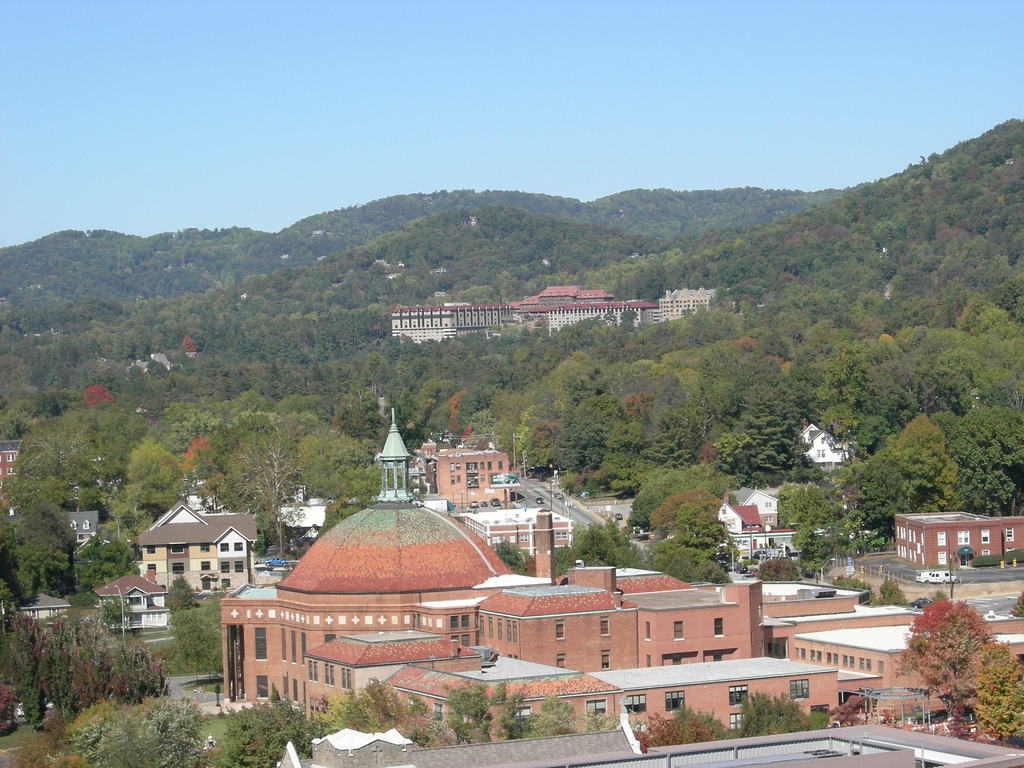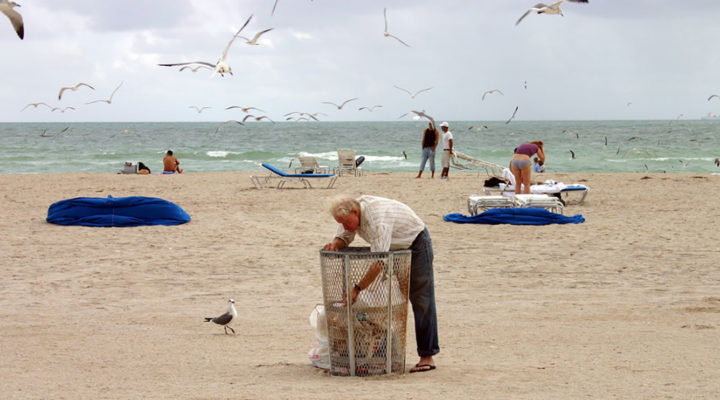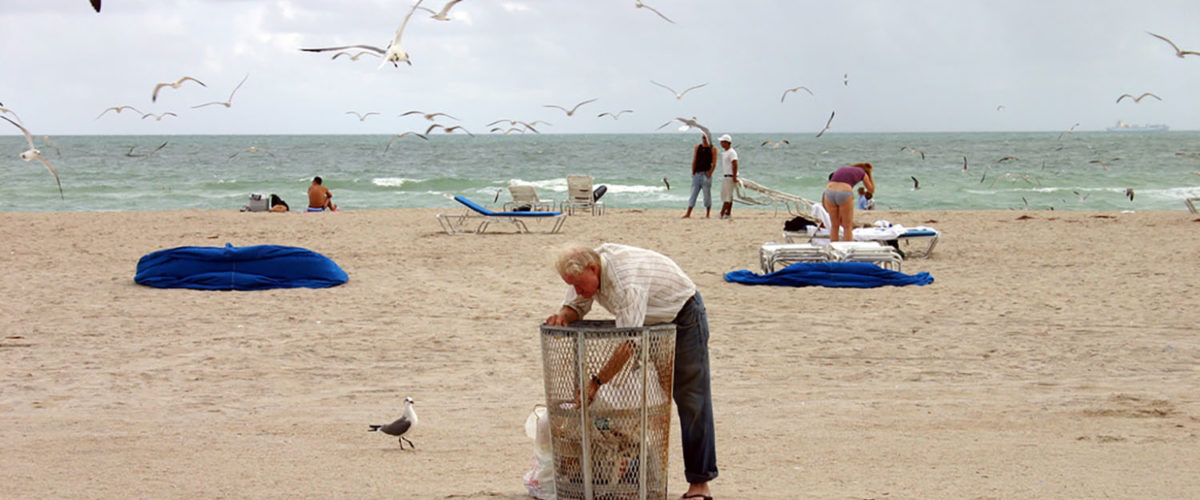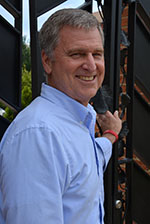Asheville, N.C., is one of those “it” places in the United States, known for everything from its blue grass and mountain vistas to its quirky shops and craft breweries.
It’s even home to a super-cool pinball museum.
The city “has been topping lists for the last few years — ‘The 17 Best Places to Travel in 2017,’ ‘The Best Cities for Beer Drinkers,’ etc.,” activist Amy Cantrell wrote in September for the Huffington Post.
“As Asheville residents, we are now used to these accolades and many more,” said Cantrell, founder of Beloved Asheville, a nonprofit organization that seeks to help the homeless, poor and others on the city’s margins.

Asheville has become a popular spot among tourists, but its homeless population is nearly invisible. (Photo/Selena NBH/Creative Commons)
From there, Cantrell segues into a gritty description of lives lived on the fringes in Asheville, about the poverty and homelessness exacerbated by an ongoing development boom and the difficulties of struggling in the overlooked corners of a tourist center.
“In this new boom, we have become number two in the nation for gentrification, are in a persistent affordable housing crisis and make the annual top 10 lists for worst food insecurity in the nation,” Cantrell wrote in her article titled “The Homeless Population of Asheville No One Talks About.”
As just about anyone who works regularly among at-risk populations knows, the disenfranchised are swept under the social rug regardless of what city they are in. But poverty, hunger and other ills can be harder to spot in recreational get-aways.
“In a tourist city it is really easy to overlook the fact that there are people who are homeless or maybe living on the margins in terms of food and safety and domestic abuse,” said David Blackmon, coordinating pastor at First Baptist Church in Asheville.
Vacationers and other visitors to high-profile destinations should remember that poverty doesn’t take a vacation, he said.
“This is just like any other city. We have our share of folks who are living on the margins.”
Nonprofit groups, churches and other organizations in the region cooperate help for those most in need. Free meals are available throughout the week at differing locations, including Thursdays at First Baptist. Free haircuts also are available and some groups are providing long-term housing to get more people off the streets. Food banks and clothes closets are in full swing throughout the city.
“There are a lot of good people doing hard work trying to help the homeless,” Blackmon said.
But it’s difficult for Asheville’s visitors to see that.
“Most people take pictures of Asheville from atop tall buildings to get a skyline view of downtown or from atop one of our beautiful mountains,” Cantrell said in her article. “But what does Asheville look like from the streets? How do our neighbors living on the streets view this place?”
‘Community needs your heart 100 percent’
Another challenge faced by ministries in tourist destinations is finding out-of-town volunteers willing or able to focus on mission during visits.
That’s a problem known all too well to Angel and Jason Pittman, leaders of Touching Miami With Love, a Cooperative Baptist Fellowship ministry that operates in some of Miami’s most impoverished and crime-ridden communities.
“Ministering in a tourism context makes it harder because there is so much there for them to do,” Angel Pittman said about volunteer teams from other parts of Florida and out of state.
One of TML’s locations is just a few miles from downtown Miami, in a neighborhood known as Overtown. That urban context requires volunteers to stay in hotels or rented homes when working at the ministry.
“That puts people in a different headspace because it feels more like they are vacationing,” she said.
The ministry also has a location in West Homestead, a community south of Miami — and the last stop before the Florida Keys.
Homestead “is not the glitz and glamor of downtown, but there is a draw to the snorkeling and sunsets and questions like, ‘Can we make it to Key Largo for dinner?’” she said.
“The worst situation was years ago, when a youth minister dropped the kids off at TML and went golfing.”
Extreme cases like that are mostly in the past since the ministry began asking prospective volunteers what draws them to TML, what mission trips look like to them and where they plan to worship while in Miami.
Visitors also are urged to arrive a day or two early so they can get their shopping and beach visits out of the way before arriving at TML.
“We tell them, this is a hurting community that needs your heart 100 percent,” Pittman said.




